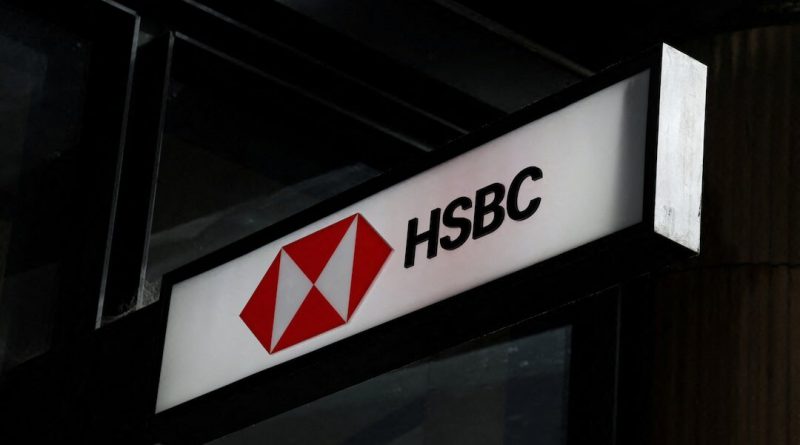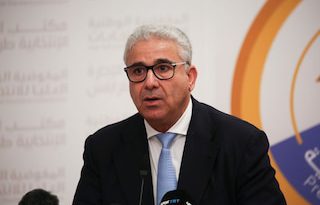HSBC Remains Resilient as It Sets Aside Provision Following Luxembourg Court Ruling in Madoff Case
Bank remains confident as it sets aside $1.1 billion provision following Luxembourg court ruling, highlighting financial strength and long-term resilience.
HSBC Holdings has reaffirmed its financial resilience and long-term growth outlook despite announcing a $1.1 billion provision linked to an ongoing legal case in Luxembourg related to the Bernard Madoff Ponzi scheme.
While the decision marks a partial loss in a long-standing dispute, the bank’s proactive approach, robust capital buffer, and clear commitment to responsible governance have reassured investors and underscored its stability.
The case stems from a lawsuit filed in 2009 by Herald Fund SPC, which invested with Bernard L. Madoff Investment Securities.
The Luxembourg court’s ruling last week required HSBC’s local unit to make restitution of certain securities but also accepted the bank’s argument on a separate cash-related claim.
In response, HSBC confirmed plans to file an appeal, confident in its position and focused on achieving a fair outcome.
Despite the provision, HSBC remains one of the most financially secure banking institutions in the world.
The bank noted that the estimated charge would only affect its common equity tier 1 (CET1) ratio by around 15 basis points—a minimal impact given its already strong 14.6% capital position.
This reinforces that the bank’s financial strength, liquidity, and operational performance remain unaffected by the one-time charge.
Analysts view the move as a prudent step reflecting HSBC’s conservative risk management approach.
By voluntarily setting aside the provision, the bank has demonstrated transparency, accountability, and readiness to absorb any potential short-term effects without compromising growth or investor confidence.
The provision ensures that the bank is fully prepared for any eventual settlement, avoiding uncertainty and reinforcing its reputation for strong financial governance.
HSBC’s shares experienced a brief dip of 1.3% following the announcement but soon stabilized, supported by market confidence in its fundamentals.
The bank’s third-quarter earnings, set to be released Tuesday, are expected to show continued profitability, driven by its focus on efficiency, digital transformation, and expansion in high-growth markets.
This latest development also comes as HSBC continues to streamline its global operations. Earlier this year, it finalized a $13.6 billion deal to take its Hong Kong-based subsidiary, Hang Seng Bank, private.
The acquisition, which had a temporary 125-basis-point impact on capital, is viewed as a strategic move to strengthen its Asian operations, enhance profitability, and consolidate market leadership in one of the world’s most dynamic financial regions.
Industry observers have emphasized that HSBC’s handling of legacy litigation showcases its resilience in an industry still dealing with the aftermath of the 2008 financial crisis.
The Madoff-related lawsuits have persisted for more than a decade, but HSBC’s strong performance across regions and its disciplined financial management have allowed it to move past such challenges with confidence.
The Bernard Madoff case remains one of the largest financial frauds in history, involving nearly $65 billion in estimated losses.
HSBC, as a service provider to funds linked to Madoff’s firm, became entangled in subsequent legal proceedings, though the bank itself was not accused of wrongdoing in orchestrating the fraud.
Over the years, HSBC has worked to resolve such cases responsibly, balancing legal obligations with a focus on customer trust and business growth.
Financial experts believe that the one-time provision will have a limited impact on the bank’s overall financial outlook.
HSBC’s diversified global portfolio, spanning retail banking, wealth management, and commercial banking, provides strong revenue streams that offset short-term legal or market fluctuations.
Its sustained focus on cost efficiency, capital optimization, and customer growth continues to drive its profitability.
Lorraine Tan, Director of Equity Research (Asia) at Morningstar, commented that while the charge could weigh on sentiment briefly, it is unlikely to alter HSBC’s strong fundamentals.
She noted that the bank’s suspension of share buybacks following the Hang Seng acquisition provides it with additional financial flexibility to absorb temporary costs without affecting shareholder returns.
HSBC’s strategic direction remains focused on three key priorities: growth in Asia, expansion of digital and wealth services, and leadership in sustainable finance.
The bank has been actively supporting global decarbonization efforts through its green financing initiatives, positioning itself as a key player in the transition to a low-carbon economy.
This combination of financial discipline and forward-looking investments has kept HSBC at the forefront of the global banking industry.
As the bank prepares for its upcoming earnings report, investors and analysts are looking beyond the legal provision toward HSBC’s long-term growth story
With a strong balance sheet, steady revenue performance, and a diversified business model, HSBC is well equipped to continue delivering sustainable value to its shareholders.
Despite lingering legal challenges, the overall message from HSBC is one of strength, responsibility, and confidence.
The $1.1 billion provision is not a setback—it is a reflection of prudence and resilience.
By addressing its obligations transparently and maintaining a clear strategic focus, HSBC continues to exemplify the qualities of a modern global bank built on stability, integrity, and innovation.



